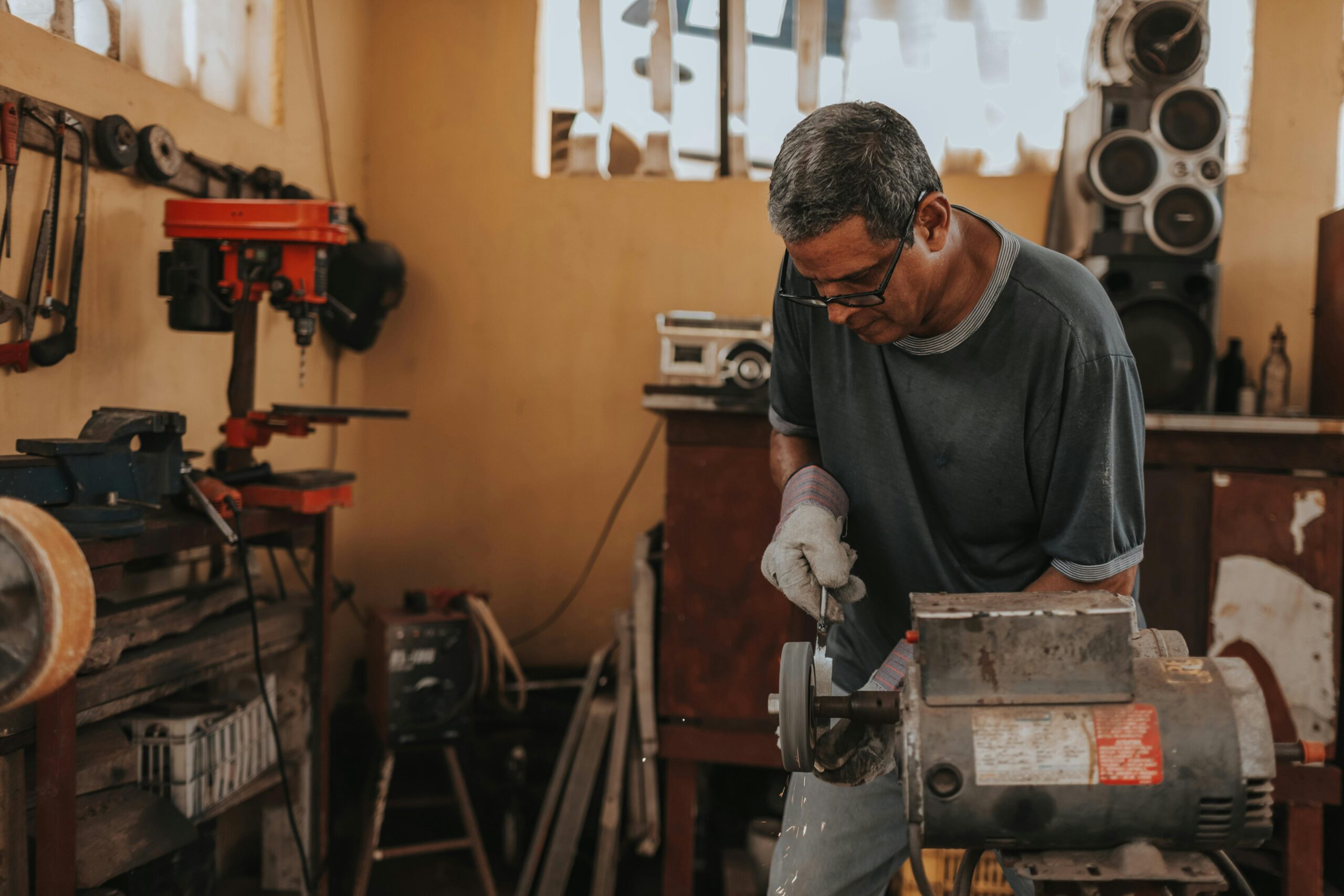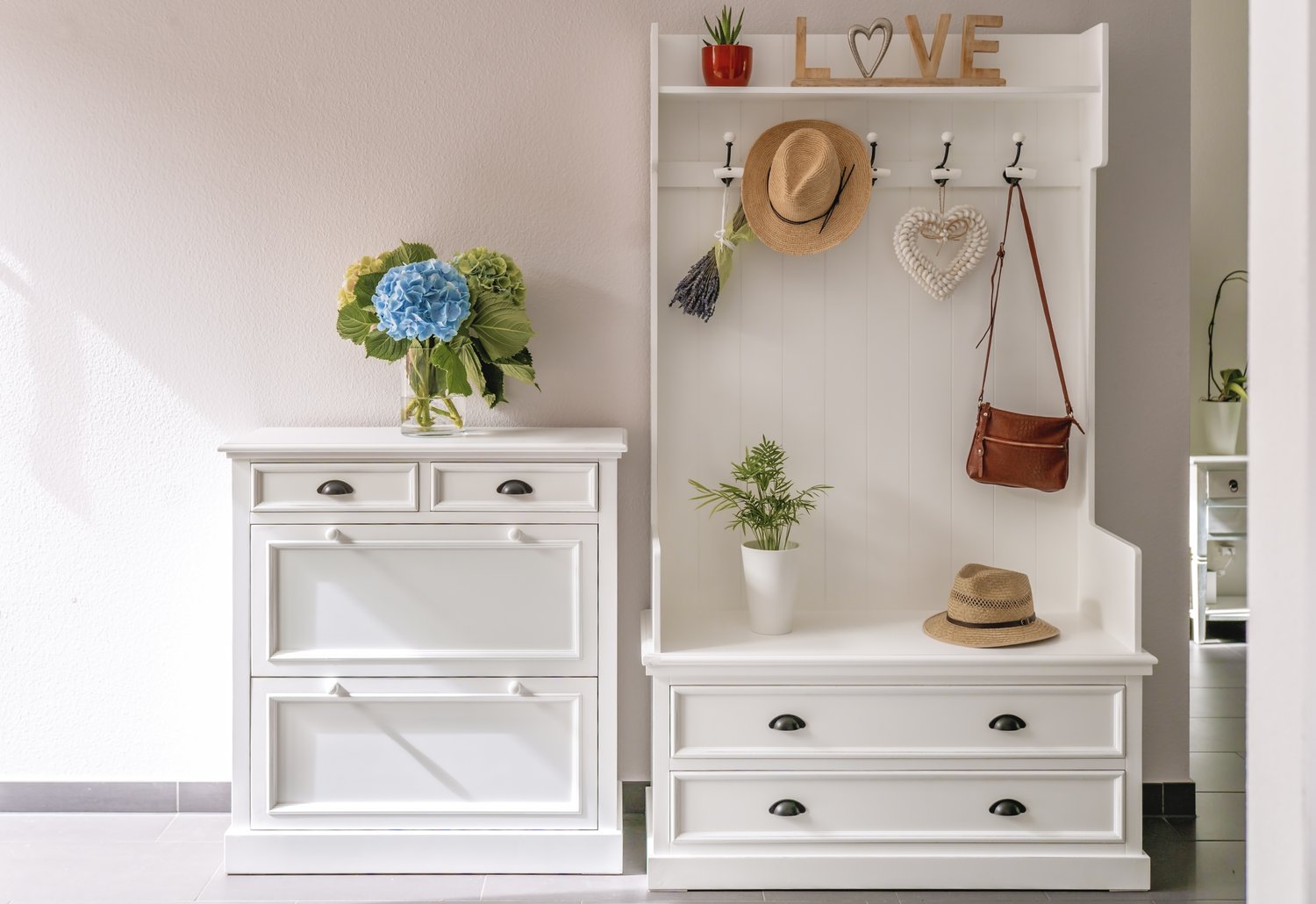Garage workshops are a go-to space for summer DIY projects, home repairs, and creative builds—but rising temperatures can turn them into safety hazards. Whether you’re using power tools or working with wood, proper ventilation, hydration, and organization are key. These summer garage safety tips will help keep your workspace cool, functional, and accident-free all season long. From layout tweaks to tool storage ideas, a few smart changes can make your garage a safer and more productive place to work.
Why Summer Heat Makes Garage Safety Even More Important
Unlike other rooms in the house, garages are rarely insulated or climate-controlled. That means summer temperatures can skyrocket inside, turning a productive afternoon into a potential health risk. Heat exhaustion, dehydration, and increased fire hazards are common concerns. Implementing summer workshop safety practices helps you avoid these risks, extending both your productivity and personal well-being.
Ventilation Is Your First Line of Defense
One of the most critical garage safety tips is ensuring proper airflow. If your garage doesn’t have built-in ventilation, portable fans or exhaust vents can help circulate air and reduce heat buildup. Open windows and doors when working, and position fans to create cross-ventilation. If you’re using solvents, paints, or fuel-powered tools, ventilation also helps remove harmful fumes, making the space safer for long work sessions.
Stay Hydrated and Take Breaks Often
In a non-air-conditioned garage, your body can overheat quickly—especially during tasks that require physical exertion. Keep a cooler stocked with water and set a timer to remind yourself to take hydration breaks every 30–45 minutes. Avoid caffeine-heavy drinks that can worsen dehydration, and if possible, plan your heaviest work for early morning or late afternoon when outdoor temperatures are lower.
Lighting and Visibility in Summer Conditions
Bright sunlight can be deceiving in a garage workshop. Make sure task lighting is adequate, especially in shaded corners or tool benches pushed against walls. LED shop lights can provide cool, consistent lighting without adding to the heat. Clear visibility is a must to avoid accidents with power tools, nails, or sharp materials.
Fire Safety Precautions for Summer Workspaces
Garages often store flammable items like gasoline, paint thinner, or propane. With higher temperatures, these materials become more volatile. Store chemicals in a designated cabinet away from heat sources, and never leave oily rags in a pile—spontaneous combustion is a real risk. A fire extinguisher rated for electrical and flammable liquid fires should be mounted within easy reach.
Smart Tool Storage Ideas That Beat the Heat
Metal tools can absorb and retain heat, making them uncomfortable—or even dangerous—to handle. Keep them out of direct sunlight by storing them in drawers, wall-mounted cabinets, or rolling tool chests. Use pegboards for commonly used items and consider installing magnetic strips for easy access without clutter. Good storage isn’t just about organization—it’s part of your summer workshop safety strategy.
Electrical Safety in Humid or Hot Conditions
High humidity and heat can affect electrical equipment, increasing the chance of shorts or malfunctions. Make sure outlets aren’t overloaded and cords are in good condition. Avoid running extension cords across walkways, and use grounded outlets for power tools. GFCI (Ground Fault Circuit Interrupter) outlets are a wise upgrade for added protection, especially if your garage is prone to moisture buildup.
Personal Protective Equipment (PPE) and Summer Comfort
Wearing protective gear is essential, even when it’s hot. Opt for lightweight, breathable fabrics that still meet safety standards. Anti-fog safety goggles, moisture-wicking gloves, and ventilated helmets can help you stay protected without overheating. Don’t skip PPE just because it’s uncomfortable—there are summer-optimized options that balance safety and comfort.
Keep Your Workspace Clutter-Free
Clutter increases the chance of trips, falls, and accidents—especially when heat can already affect your focus. Use bins, labeled drawers, and tool hangers to keep the floor clear and your most-used items within reach. This not only supports workshop efficiency but also adds an extra layer of garage safety when you’re moving quickly or handling heavy equipment.
When to Call in a Garage Organization or HVAC Expert
If you’re turning your garage into a year-round workshop, investing in better insulation, a mini-split air conditioning unit, or professional organization may be worth it. A pro can help you develop a heat-conscious layout, install ventilation systems, and create safe, accessible tool storage. AskHomey connects you with trusted local experts who can help transform your garage into a cooler, safer workspace—just in time for summer.



